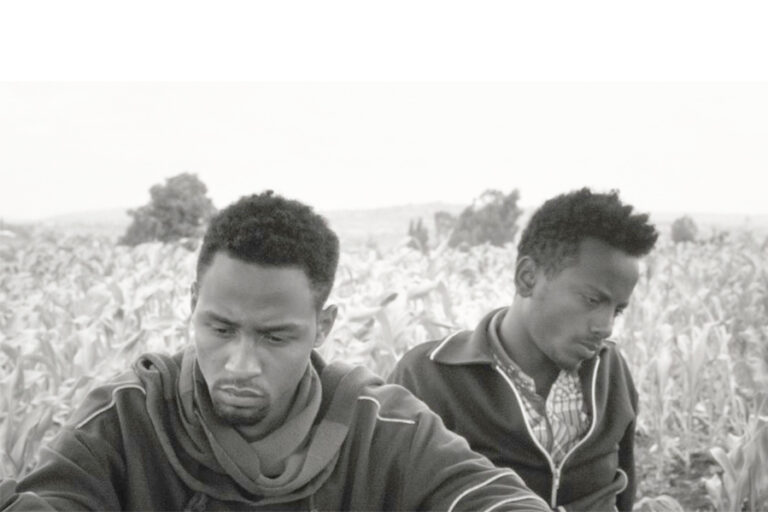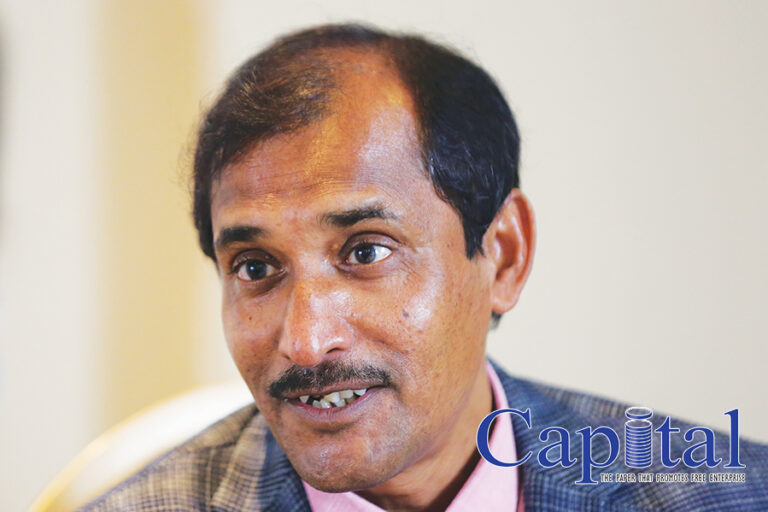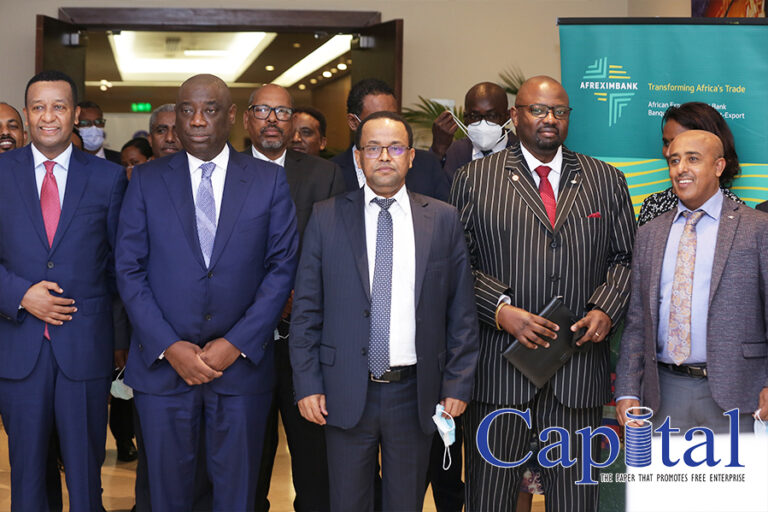Filmmaker Jessica Beshir’s bending, swaying nonfiction journey “Faya Dayi” explores rural Ethopia by way of the production and consumption of the chewable narcotic leaf called khat an approach not in the traditional manner of an issue documentary or informational travelogue, however, but as a state of mind to be received. That drug, in other words, called cinema. Yes, there are harvesters, packagers and users speaking to us, and a camera that captures a community dependent on and wary of its grip. Yet in eschewing directness of intent for the artful massaging of space, sound and rhythm, Beshir’s film a very personal project for the Mexican Ethiopian director, which she shot over 10 years stakes a richer claim to our sense of the place and the effect of its most lucrative crop.
The black-and-white photography is tenderly textured even in its starkness, as evocative with a diaphanous curtain in sunlight as with people working at night, and the nature all around them. It’s also a melancholic indicator, however, that while this is a beautiful culture, it’s in the grip of a monochrome economy that’s swallowing everyone. “Everyone chews to get away,” one boy’s voice-over tells us. “Their flesh is here but their soul is gone.” The bustle of khat’s reaping in the fields, bundling in packed warehouses and selling on the streets is not unlike the plant’s stimulating effects one source of energy in the film, while interiors with transfixed chewers and ritualized users (it’s been a Sufi pathway to transcendence for centuries) create another mood entirely.
The heartbeat of Beshir’s film, though, is with its wandering young narrators people looking for a way out of a homeland they love and worry for. Her threading of their collective searching presence, like lonely guides navigating an encompassing, self-medicated haze, is what gives “Faya Dayi” its dignifying, transfixing intimacy and what renders it unlike any other documentary you’re likely to see.
(LA Times)
Review: ‘Faya Dayi’ observes rural Ethiopia and the crop that transfixes its people
Sustainable resources
Bamboo and rattan are astounding resources with unique potential to combat poverty and natural resources challenges. They grow locally to some of the world’s poorest communities in the tropics and subtropics, and have many uses, providing a vast range of sustainable products, livelihood options and ecosystem services. If wisely harnessed the potential of bamboo and rattan will be instrumental to preserving the environment and climate as well as the goals set by the UN-Sustainable Development Goals.
One organization on the fore front of using the potential of bamboo and rattan is the International Bamboo and Rattan Organisation (INBAR) which was founded in 1997. Over the years, INBAR has been making a real difference to the lives of millions of people and environments around the world, with achievements in areas such as: raising standards; promoting safe, resilient bamboo construction; restoring degraded land; capacity-building; and informing green policy and Sustainable Development Goal objectives. Capital sat down with Regional Program Manager, Selim Reza (PhD) for insights on the organisation’s work in Ethiopia. Excerpts;
Capital: Tell us about INBAR?
Selim Reza: International Bamboo and Rattan Organization /INBAR/ is an intergovernmental organization. Currently, there are 48 member countries and majority of the member countries are from the African countries. We have the head quarter in Beijing China and we have a few numbers of regional offices which are from the East Asian countries. We also have an office in Delhi India, and for Central African countries, we have an office in Cameroon. Furthermore, we have an office in Ecuador for Latin America while the East African office is here in Addis Ababa.
Basically we work with the government, private partners and entrepreneurs’, media people, (journalists), researchers, academicians and scientist. You can say that our work deals with scientific research for the future development. Moreover, we support technology transfer to the community so that they can uplift themselves in the bamboo sector.
Our main focus is in three major areas: The first is the Enterprise development or Enterprise and Industry support. Secondly, we also support land restoration and thirdly, climate change mitigation. So these are our three core areas as per the UN-SDG goals. Our support overall completes a few number of UN-SGD goals which are around 7 through bamboo activities.

With regards to the East African office in Addis Ababa, it was established in 2009 and we have a number of projects. We already are implementing projects which give us the encouragement and the confidence to work with the government. Initially, we have with the ministry of agriculture and the Ethiopian forest and climate change commission and we hope to work and collaborate with other government bodies in our projects.
For our facilitation and smooth operation of our activities we have one representative in the commission, who is a senior officer deployed and is working now. These are some of the examples of the dynamic group operations and also facilitation with the linkages within the INBAR as well as the commission.
Currently, we have two projects which are being implemented here in Ethiopia. One is being implemented in Amhara region funded by the IFL whilst the other project is East Africa, bamboo development program which is a phase 2 project, a progress from the first phase which was started in 2016 and completed in 2019.
We strongly believe that developmental projects are in line with the good work in terms of the policies and local capacity buildings to the local government ministries and community. As a result the second phase of the project was extended until December 2023. The project is supported by the Dutch ministry as well the government of China and we have several partners in the program as well.
Capital: Who are your partners?
Selim Reza: Ethiopian Environment, Forest and Climate Change Commission, Ethiopian Trade and Tourism Enterprise and several universities, are a great example of partners who we are doing some research with. Moreover, we collaborate with the Ethiopian Environments Policy Research Institution as well as private partners in the bamboo industry.
Within our working structure of activities, we have a few number of core activities as part of the project design. One is promoting the industrial bamboo value chain for the small enterprises as well as the industry. For the small enterprises we focus on capacity building, new design development, technology promotion and market promotions which we place emphasis on to strengthen the value chain.
Apart from capacity building and value chain development on the industry, we pay close attention to workers especially so that they can produce quality products and work in line with the company. We are also working with an outcome for the large scale land restoration and new area plantation for ‘Bamboo Plantation’ especially and nursery developments. To this end we are promoting large-scale, nurseries and also medium and small scale with different types. In addition to this, we are providing different kinds of training to the local community for the management and establishment of the nursery. We are also lining people in different departments, especially from the forest Department at EFCC in the agriculture Ministry, like development workers as well as the different experts.

We primarily provide the training so as to best train them as well as develop their capacity so that they can tackle their job head on. In conjunction to this, we also promote bamboo charcoal based activities for the clean energy program.
Capital: Kindly elaborate further about the bamboo charcoal.
Selim Reza: It is one of our new projects focusing on bamboo charcoal. Bamboo charcoal has no smoke and burns smoothly. The main benefit is that by using bamboo charcoal, we are not destroying the forest, since bamboo is a renewable resource. Bamboo charcoal is four times more porous than regular wood charcoal. That means – it is a lot more effective.
One of the best things about bamboo charcoal is that it produces significantly fewer pollutants compared to wood charcoals, making it an eco-friendly source of renewable energy.
The bamboo charcoal adsorbs odor and pollutant particles by trapping them while air or water flows through the pores, purifying the surrounding air or water in the process. Thus it can be used as a dehumidifier and deodorizer. This has made it popular with the women who are at the fore front of cooking in traditional kitchens.
With regards to this project, we are implementing it in Bahirdar with different model bamboo charcoal enterprises in collaboration with NGOs, community government and professional partners.
Capital: How are you planning to promote the bamboo sector for the future?
Selim Reza: We are working on activities to develop a bamboo curriculum to help industries get certified people and we are going to do it in stepwise levels like from level on to three using different courses. This will strengthen the future’s sector as well as its credibility and standard. In addition, we are also trialing and testing some of our product lines which are almost on shipment state for the high land and low land bamboo. Because Ethiopia has two bamboo kinds, the highland and the lowland, we can use both of the species to make different products as a result we are sending full containers of both bamboos to China. In turn the Chinese industries are working with the ICBR to desk nine products and will also give the report in the multi supply chain and multiple users of bamboo in the industry. We are further promoting the sector by doing research on the use of bamboo leaves in addition to working with entrepreneurs who are working on producing bamboo bio fertilizer.
Regarding the market promotion, we are having different industry visits and market promotions as well as investor meetings, but due to the pandemic we were not able to organize inter country meetings.
Similarly, we are working to develop a bamboo depot so as to simplify the supply chain with the farmers to industries.
We have done two researches of which one is the agro climatic journal regarding the bamboo sites while the other is on gender study document on how women can be empowered in the bamboo sector.
Capital: The government is planning to build a bamboo training center. What is INBAR’s participation on this?
Selim Reza: The project is part of the Chinese government’s contribution to which the Ethiopian government will provide land with construction set to commence very soon. INBAR will provide any type of support since we are in the line of partnership with the center since when it is fully complete we will move in the center.
Capital: What’s your thought on government’s support of the bamboo industries?
Selim Reza: I think the government has done positive steps necessary for the industry since it has already prepared its strategic action plan. The government designed the plan in such a way that it will enable the industry to get support by mobilizing resources from different funding agencies. Furthermore, with regards to bamboo transportation, government has also issued license and necessary permits. The Ethiopian Investment Commission /EIC/is also promoting bamboo activities which show the value of support for the industry. The government has also involvement in the clean leadership program and had targeted 10 percent in bamboo plantation and the government is currently achieving more than this, so it is safe to say that government has been part and parcel as a contributor to the sector.
Capital: What are the challenges that the bamboo industry in Ethiopia is facing?
Selim Reza: The major challenge for not only Ethiopia but the entire African countries is the lack of professionals and professionalism in the sector as well as the lack of institutes. Similarly in the market, people still have the notion and mindset that bamboo is the poor man’s invest. However there ought to be a shift in these challenges and we are working on giving out the right information so that society remains informed. We are also focusing and prioritizing professionalism and collaborative efforts of relevant institutions to curve out great products in the market.
Rethinking Established Narratives
The wholesome sustenance of the reigning global system was and still is predicated on the assumption; given time, all of us will be better off, economically, socially, culturally, etc. Nonetheless, this critically unexamined assumption of the world system, which has been facing turbulent headwinds for decades, if not centuries, is now thoroughly unhinged from anything that looks sane and rational. The global economic regime that anchors all the rest of the other societal superstructures has also been in a flux for quite a while now. But since the 2007 crisis, its underlying problems have become intractable and almost unmanageable!
For a start, global social existence has become more and more confrontational. And unlike the narrative of the status quo, the ascendance of repetitive violent episodes are not only due to emerging non-state actors, but are also results of the state actors themselves! The larger natural world, in which all lives thrive, is threatened with aggressive destruction, thanks to the system’s excessive greediness & shortsightedness! In other words, the established narratives of the world system, which have been the ideological pillars of the system, in one form or another, are clearly losing their credibility. Moreover, the suffocating shallowness of established discourses have rendered even mild reforms unacceptable. As a result the world now threads on the throes of violent revolutions of all kinds. At the same time, those who have been at the forefront of the whole debacle continue to hold sway over the lives of all humanity.
Naturally, such an arrangement cannot be expected to hold for long. But nothing doing! The filthy rich and supremely stupid are still at it trying to sustain the unsustainable. Even their hired goons/brains will not be able to come up with convincing gimmicks to continuously contain the anger that is on the verge of gushing out all over the world. Before long, we believe the sickening reality imposed on the sheeple by the parasitic clowns (.01% of the global population) of the system will face the music!
Hired brains (Ivy league clown types) in the service of entrenched interests, who knew all along the system’s obvious weaknesses, but were not bold/confident enough to allow logical/rational critics/reflections to emerge, are now so scared of the emerging concrete reality on the ground, they can hardly muster the intellectual strength to utter any sensible comment/remark in regards to the prevailing chaotic situation. Be that as it may, the collapse of the whole unsustainable edifice cannot be postponed any further! The various institutions (IMF, WB, WTO, NATO, UN, universities, etc. of the status quo) made sure that all critics are systemically muzzled and ridiculed so that the gullible & hardly thinking beast can still be moored to its traditional but unfulfilling grazing fields (entertainments, sports, etc.) Currently, the sheeple rightly resents its pauperization & complete marginalization, though it lacks the intellectual/mental wherewithal to deconstruct the reality, sanctioned by the prevailing global narratives! This is where the need for ‘organic and committed intellectuals’ comes in, alluding to Gramsci’s phrase!
Hired goons include those who are willing to eliminate any sensible soul from the face of the earth, not on basis of humane and higher principles, but for crumbs thrown at them by the parasitic butchers of the system. Without a doubt, these charlatans of the ‘deep states’ are the most dangerous unthinking lackeys of the global order. For us, the deadly operational and structural nexus of the Military-Intelligence-Industrial-Banking-Media complex characterizes the prevailing ‘deep state’ of the prevailing undemocratic world! Don’t forget; it is because of deepening structural crisis of the modern world system, humanity is witnessing the proliferation of deep states across the world. Prescribed by the super elites of the global population, which only number the miniscule 700,000 individuals (less than .01%) the core states of the system have now acquired a fully Frankenstein form! Thanks to their operators (goons/brains), ‘deep states’ have superciliously eschewed almost all democratic dispensations, rhetoric aside!
By relying on the old and proven tactics of manipulation, indoctrination, surveillance, fear and persecutions & prosecutions, the goons of the ‘deep states’ are fomenting chaos all over the world! The beast across the world is being mobilized to support the political demagogues in their beastly and monstrous adventures. Inculcating hatred of all kinds (racial, religious, etc.) to support aggression all over is being employed systemically and efficiently. False flags have become so common that even the uninitiated have started to become sharp observers of such malicious events! Remember the downed Malaysian plane over Ukraine, or the weapon of mass destruction (chemical) allegedly used in Syria by the Syrian government against its own people? Etc. etc!
From the sheeple’s point of view, what must be attempted is the wholesale rejection of establishment dogmas.







